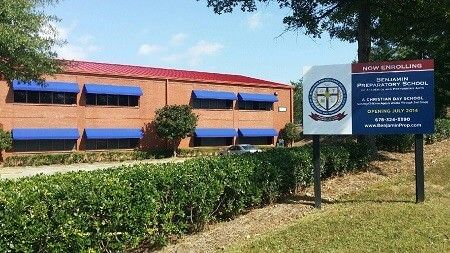Welcome to the passionate and dynamic field of early childhood education! Choosing the perfect school for your educational journey or your child is a crucial decision. This comprehensive guide will look into the details of what schools offer early childhood education. Whether you are a prospective student or a parent seeking the best for your child, this blog aims to provide complete insights and information.

What Schools Offer Early Childhood Education

Understanding Early Childhood Education
Early childhood education serves as the foundation for shaping the future of our youngest learners, promoting holistic development during the critical years from birth to around eight years old. This important phase contains profound cognitive, emotional, and social growth, laying the groundwork for a lifetime of learning and success.
In early childhood education, the focus extends far beyond conventional teaching methodologies. It is an inclusive approach that recognizes the unique needs of each child, valuing their individuality and recognizing the importance of early experiences. These formative years are not only a precursor to later education but represent a crucial period where the seeds of curiosity, creativity, and social skills are planted.
Teachers in early childhood education act as facilitators and guides, creating supportive environments that encourage children to express themselves freely. This approach recognizes the importance of social and emotional development alongside academic achievement. Early childhood education is not limited to the classroom. It extends to collaborative partnerships with parents, caregivers, and the community. Recognizing the integral role of families in a child's development, early childhood educators actively engage with parents to create a harmonious bridge between home and school. This collaboration enhances the child's learning experience and ensures continuity in their development.

Top-Ranked Early Childhood Education Programs
Benjamin Prep's Curriculum Excellence
- One of the defining factors of top-ranked programs, such as Benjamin Prep's, lies in their powerful and comprehensive curriculum. Covering an array of crucial subjects including child development, teaching methodologies, and effective classroom management, these programs go beyond the basics. The emphasis on a well-rounded curriculum ensures that students gain a holistic understanding of early childhood education, preparing them to address the diverse needs of young learners.
Cutting-Edge Teaching Methods
- Top programs pride themselves on adopting cutting-edge teaching methods that incorporate the latest research in education. Like Benjamin Prep, employs innovative pedagogical approaches that empower students to adapt to the ever-evolving landscape of early childhood education. From project-based learning to technology integration, these methods aim to equip educators with the skills needed to engage and inspire their future students.
Practical Experiences and Internships
- Beyond theoretical knowledge, the best programs emphasize practical experiences and internships as integral components of the learning process. Benjamin Prep ensures that students have hands-on opportunities to apply their classroom learning in real-world settings. By participating in internships, students gain valuable insights, develop practical skills, and establish connections within the early childhood education community.
Faculty Expertise and Support
- Benjamin Prep boasts a team of experienced and dedicated instructors who bring a wealth of knowledge to the classroom. Faculty members actively engage with students, providing mentorship and support throughout their academic journey. This personalized approach fosters a collaborative learning environment, enhancing the overall educational experience.
State-of-the-Art Resources and Facilities
- Recognizing the importance of a conducive learning environment, top programs invest in state-of-the-art resources and facilities. Benjamin Prep ensures that students have access to modern libraries, cutting-edge educational technology, and interactive classrooms. These resources create an atmosphere that stimulates learning and facilitates the development of essential skills for future educators.
Commitment to Diversity and Inclusion
- Another distinguishing feature of top-ranked programs is their commitment to diversity and inclusion. Schools like Benjamin Prep actively cultivate an environment that welcomes students from various backgrounds and experiences. This commitment prepares educators to create inclusive classrooms that celebrate diversity, ensuring that all children feel valued and supported in their educational journey.

Choosing the Right School
The process of selecting the right school for your early childhood education journey requires a thoughtful and informed approach.
Here, we provide details to guide you through this crucial decision-making phase without relying on specific words listed in the special note:
Visit School Websites
- Look deeper into each school's official website to gain a better understanding of their mission, values, and educational philosophy.
- Scrutinize program details, faculty profiles, and any collaborative initiatives or partnerships that contribute to the overall educational experience.
Attend Open Houses and Information Sessions
- Actively participate in virtual or in-person open houses and information sessions to gain firsthand insights into the campus culture.
- Interact with faculty members, current students, and administrators to get a feel for the learning environment and support systems in place.
Seek Student Reviews
- See the student reviews and testimonials, focusing on both positive experiences and constructive feedback.
- Pay attention to patterns in feedback to identify the aspects of the program that resonate with students and potential areas for improvement.
Consider Financial Aid Options
- Explore the financial aid options offered by each school, including scholarships, grants, and any additional support programs.
- Evaluate the transparency and accessibility of financial information to ensure a clear understanding of the cost and available resources.
Evaluate Campus Facilities
- Consider the state-of-the-art facilities available on each campus, including classrooms, libraries, and recreational spaces.
- Assess the technological resources and educational tools that contribute to a modern and conducive learning environment.
Examine Alumni Networking Opportunities
- Explore the alumni network of each school, as it can play a crucial role in your post-education journey.
- Look for programs that foster ongoing connections between current students and successful alumni, providing valuable mentorship and career guidance.
Assess Cultural Diversity and Inclusivity
- Check the level of cultural diversity and inclusivity within each school's community.
- Consider the impact of a diverse learning environment on your personal and professional growth, and evaluate the school's commitment to fostering an inclusive community.
By taking a comprehensive and thoughtful approach to choose the right school, you empower yourself to make an informed decision that aligns with your educational goals and values. Each aspect outlined above contributes to the general experience you will have as a student, ensuring that your chosen early childhood education program is not just a school but a supportable environment for your academic and personal development.
FAQs
What is Early Childhood Education, and Why is it Important?
Early Childhood Education refers to the period of learning that takes place during a child's early years, typically from birth to around eight years old. It is crucial because these early years are formative, shaping a child's cognitive, emotional, and social development. Quality Early Childhood Education sets the foundation for a lifelong love of learning and contributes to a child's overall success in later years.
How Do I Know if a School's Early Childhood Education Program is of High Quality?
Look for key indicators of quality, such as accreditation by recognized bodies, a comprehensive and well-rounded curriculum, experienced faculty, modern facilities, and positive alumni success stories. Check for reviews and testimonials from current or former students to check the overall satisfaction and effectiveness of the program.
What Career Opportunities are Available with a Degree in Early Childhood Education?
A degree in Early Childhood Education opens up various career paths, including roles as preschool teachers, kindergarten teachers, childcare center directors, educational consultants, and curriculum developers. Graduates may also pursue positions in advocacy, policy-making, or community outreach related to early childhood development.
How Can I Find Early Childhood Education Schools Near Me?
Utilize online resources to search early childhood education schools near me, to identify schools in your local area. Visit school websites, attend open houses, and explore information sessions to gather more details about the programs offered. You may also consider seeking recommendations from local educators or education professionals.
Are There Financial Aid Options Available for Early Childhood Education Programs?
Many schools offer financial aid, scholarships, and support programs for students pursuing Early Childhood Education. Explore the financial assistance options provided by the schools you are interested in, and don't hesitate to inquire about scholarship opportunities.
Conclusion
The world of early childhood education is a dynamic and promising one, filled with opportunities to shape young minds. By exploring top-ranked programs, considering key components, and researching local options, you can find a school that aligns with your goals. Remember to seek inspiration from local success stories, and may your journey into early childhood education be the first step toward a fulfilling and impactful career. Best of luck in your educational efforts!
